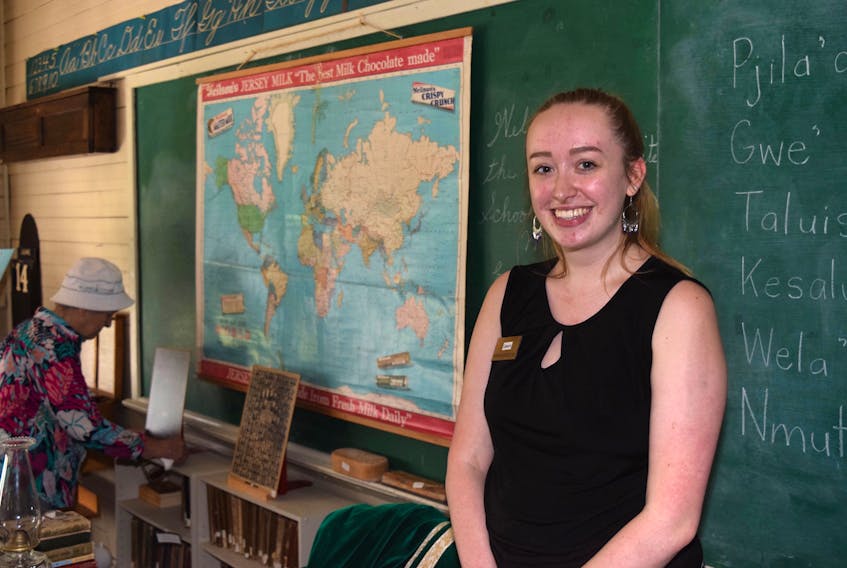TRURO, N.S. — Gwenn Firth is not afraid to speak her mind and ask the big questions.
But as Firth looked around the Little White Schoolhouse Museum on 20 Arthur Street, where she is an interpreter, the thought of getting the strap just for speaking freely was a sobering one.
“I was an outspoken kid, so I can imagine I would have been getting the strap on a daily basis,” Firth, 21, said with a nervous giggle. “You never know, I probably would have learned to live with it.”
Even had she escaped the teacher’s wrath, Firth would have had to study the Bible in what was a much more religious society with rigidly-defined expectations for girls, from dress codes to speech. A self-confessed free thinker like Firth would have been frowned upon and likely disciplined for insubordination.
A century ago, a typical schoolhouse teacher presided over dozens of students ranging from primary level to Grade 12 and did not have the time or energy to focus on any one child facing trouble with the subject matter.
All in all, the one-room schoolhouses that dotted rural Nova Scotia 100 years ago were a far cry from the quality education Firth enjoyed in 21st Century Truro, passing through Bible Hill Junior High and Cobequid Educational Centre before graduating about three years ago.
In modern schools, classes have a range of different teachers for various subjects, who are able to spend more one-on-one time with students and offer them an education best suited to their individual needs and strengths. Values such as independent thinking and compassion are highly prized, while both corporal punishment and one-room schoolhouses are now confined to history.
“It’s a multi-disciplinary kind of study,” said Firth of her own education. “You want different ways of doing things, we talk about tactile, kinesthetic and auditory learning.”
Old-school education no picnic for teachers either
At 97 years old, Mary MacLean can well remember that rules for teachers were just as strict as those for students.
She graduated from the Nova Scotia Teachers College in Truro aged just 18, where any breach of the rules could result in trainees being sent home or given “a severe talking-to.”
“It was during wartime and there were quite a few restrictions,” said MacLean, who taught at one-room and bigger schools in Pictou County. “We weren’t supposed to have anything to do with the soldiers, be out on the streets at night and there were certain areas of Truro that we weren’t supposed to go to.”
MacLean said the professors taught trainee teachers about personal deportment and how they needed to present themselves to students.
When not in class at the NSTC, the trainees were expected to stay in their boarding houses.
Despite the strict discipline, MacLean came back to Truro on Aug. 16-18, where she enjoyed a reunion with her fellow NSTC graduates and was the oldest one present.
A number of NSTC teachers also visited the Little White Schoolhouse Museum, where they were served tea and cheesecakes by Firth.
The museum itself was previously a schoolhouse in Riverton, Pictou County.









